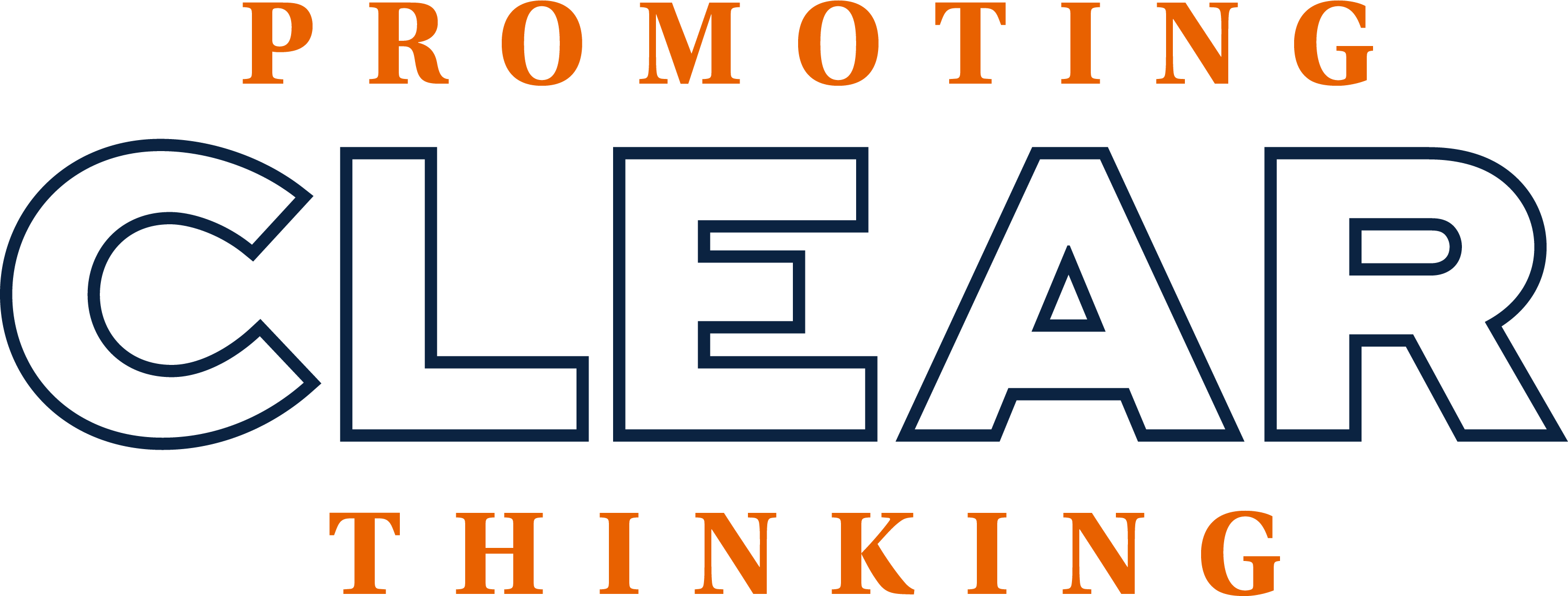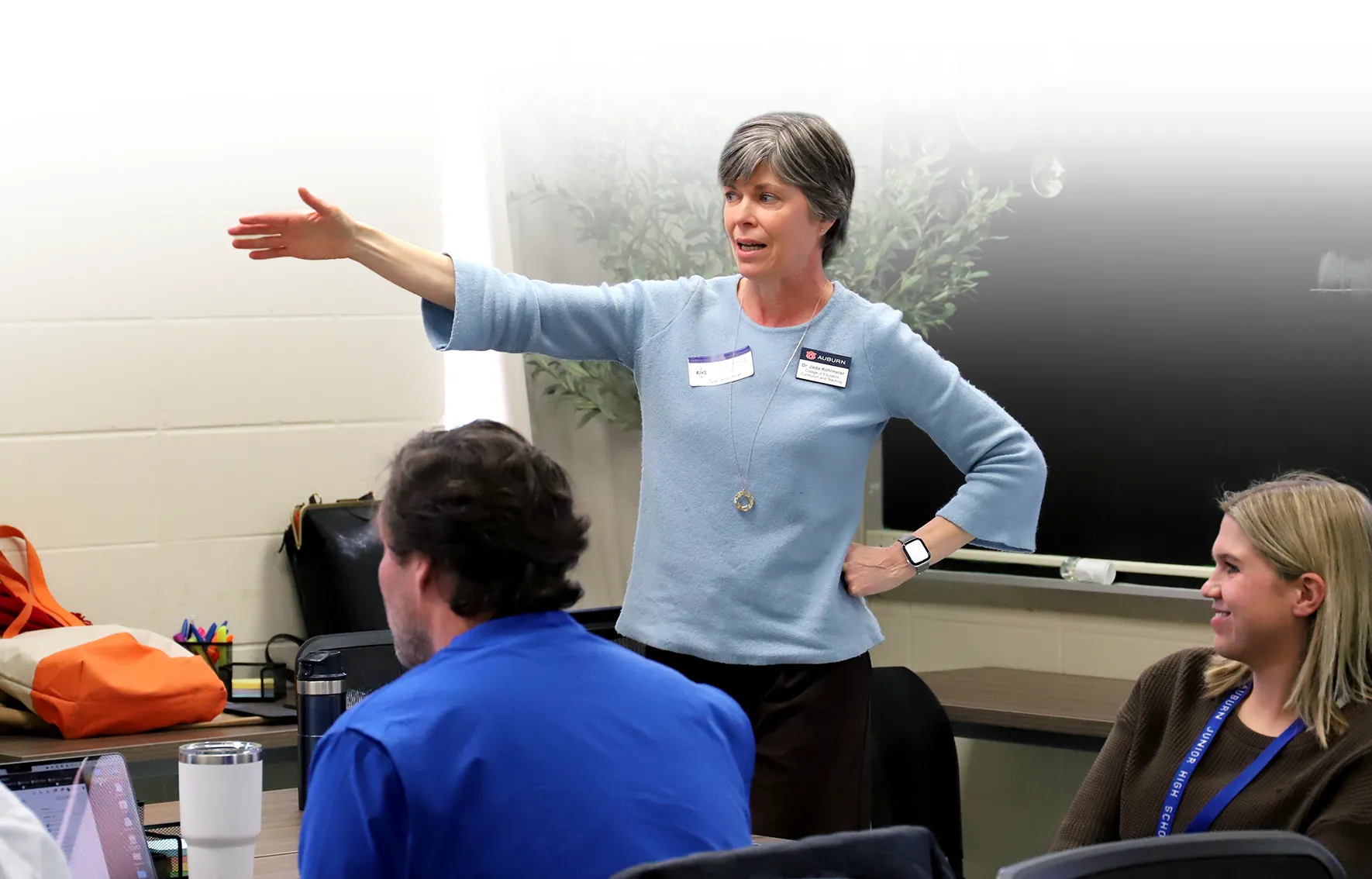Promoting CLEAR Thinking

Jada Kohlmeier has a clear approach to addressing complex issues. And it’s a process she’s hoping to convey to future generations of educators and students alike.
Kohlmeier, the Humana Foundation-Germany-Sherman Endowed Distinguished Professor in the College of Education, and Steven Brown, the Morris Savage Endowed Chair in political science and program director for the College of Liberal Arts’ Law and Justice program, have been awarded more than $2 million in funding from the U.S. Department of Education to conduct the program. Over three years, the pair will conduct professional development with secondary social studies teachers virtually so those in rural and underserved districts may participate.
“Democracy is unnatural, and humans feel comfortable and happy when they are surrounded by people who think and believe the same things they do,” said Kohlmeier. “Democracy requires an affinity and tolerance for multiple perspectives, so our approach here at Auburn is to recognize democratic values and how they may be in conflict and must be balanced when it comes to certain issues.”
Kohlmeier and Brown have recruited 40 teachers from nine states and divided them into 10 different groups, each led by a Lesson Study Leader who is a graduate of an Auburn Social Sciences Education graduate program.
The groups are organized by topic and grade level and collaboratively develop a mini instructional unit on an ethical question relevant to their course. A study leader films the teachers implementing the lessons in their own classrooms, and then reflects on it with the teacher in an interview.
Next, the team watches one of the teachers’ implementation videos and collaboratively reflects on how the students responded to the lesson. The team meets virtually to revise the lesson to increase student achievement, then another member of the team will film themselves teaching the revised version and allow the team to reflect upon that implementation for a second round of revisions. The final lessons are then uploaded to the Persistent Issues in History website.

Now, one year into the project, the mini-units have been created and students around the country are starting to participate in the lessons.
“Our biggest accomplishment for the first year has been developing 10 robust mini-units that are going to get secondary students thinking deeply about complex social issues,” said Kohlmeier. “Those lesson are being implemented right now and the reflection process is just beginning.”
During year one, Brown focused the content on voting rights and Landmark Supreme Court cases related to gerrymandering. Several high school groups focused on issues of state laws related to Voter ID, mail-in voting, felons voting, and gerrymandering. Groups whose curriculum do not fit voting rights created lessons on other topics, including how Mesoamericans should respond to European Conquistadors or applying various Enlightenment philosophies to questions of fairness and justice.
“It’s very early in the lesson reflection process, but we’re seeing the teachers are enthusiastic about the opportunity to collaborate with teachers from different states and contexts,” said Kohlmeier. “They have reported growth from learning from each other and expressed pride and enthusiasm for the complex lessons they built with their teams.”
Samuel Cleveland, a ninth-grade World History teacher and tenth-grade U.S. history teacher at Opelika High School, is working in a team led by Jesús Tirado, an Assistant Professor of General Social Sciences Education in the College of Education.
Over the summer, Cleveland and his group attended informational lectures by Brown and crafted a three-day lesson for their students regarding early French and British philosophers whose ideas were direct influences on the founding documents of the United States. In the mini-unit, students were put into groups to role-play leaders of countries and asked to make difficult decisions, and the lesson culminated in an individual essay where students argued which ideas were the most important to them.
“My biggest takeaway so far is that there is always something to learn from other teachers,” said Cleveland. “Whether they have been teaching for 40 years or two years, each teacher has their own style, background, and perspective that they bring to each lesson.”
“Working in groups gave me a chance to work with people that I normally wouldn’t get to know,” said Cornesia Williams, one of Cleveland’s ninth-grade students. “It also made it easier to learn about the Enlightenment and think about it in different ways.”
“Our group work was really fun and made getting the job done easier,” agreed Taylor Dowdell, another ninth-grader. “I always have a great time while having Mr. Cleveland as a teacher.”
Lesson Study Leader Robert Jones is a seventh- and eighth-grade social studies teacher at Sanford Middle School and has also found value in the collaborative aspect of CLEAR Thinking. Although the project is still in its early stages, it takes Jones back to the root of his decision to become a teacher.
“The ‘why’ is helping students make sense of the world around them,” he said. “There is so much noise and a huge lack of understanding of the problems we face in the world. The model of social studies education I learned at Auburn—a model rooted in problem-based historical inquiry and in the persistent nature of the issues we face—still guides how I structure units for my students. The goal is to help them understand the world around them with the same tools I learned as an undergraduate and doctoral student at Auburn University.”
With the first year of the program completed, Kohlmeier and Brown will use years two and three to implement what they’ve spent the first year building. They will analyze data related to teacher learning throughout this process and data related to students’ learning and civic reasoning through classroom discussion and argument writing. The teachers will continue implementing their lessons, reflecting with their teams, revising the lessons and analyzing their students’ learning.
“Ultimately, we hope to see teachers become more comfortable with authentic pedagogy, which means designing and implementing lessons that ask students to deliberate on authentic social questions,” said Kohlmeier. “We hope they grow as risk-takers for themselves and their students as a result of feeling supported by colleagues and the CLEAR Thinking team.”